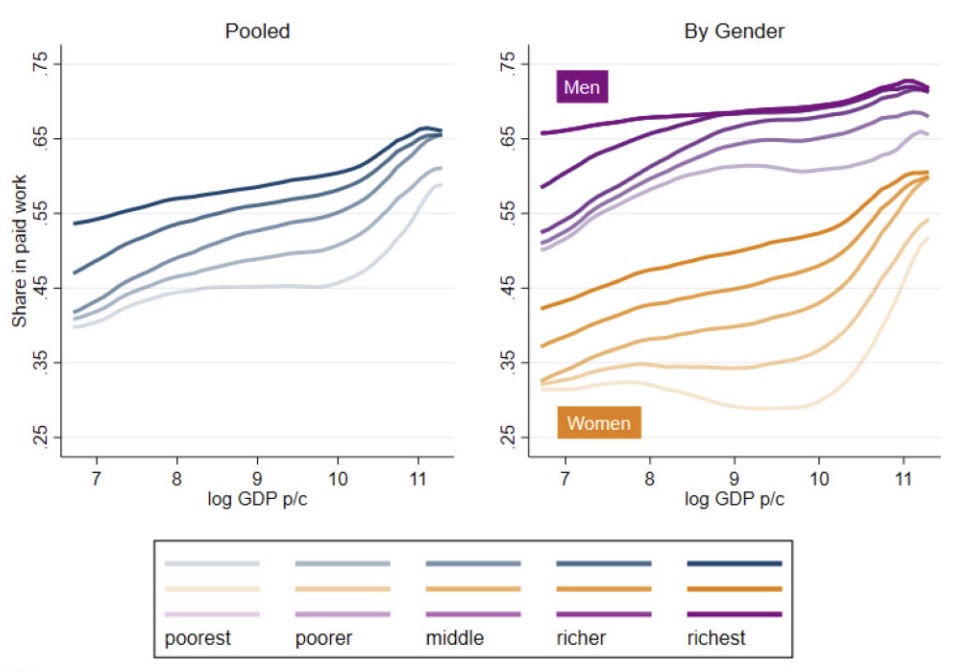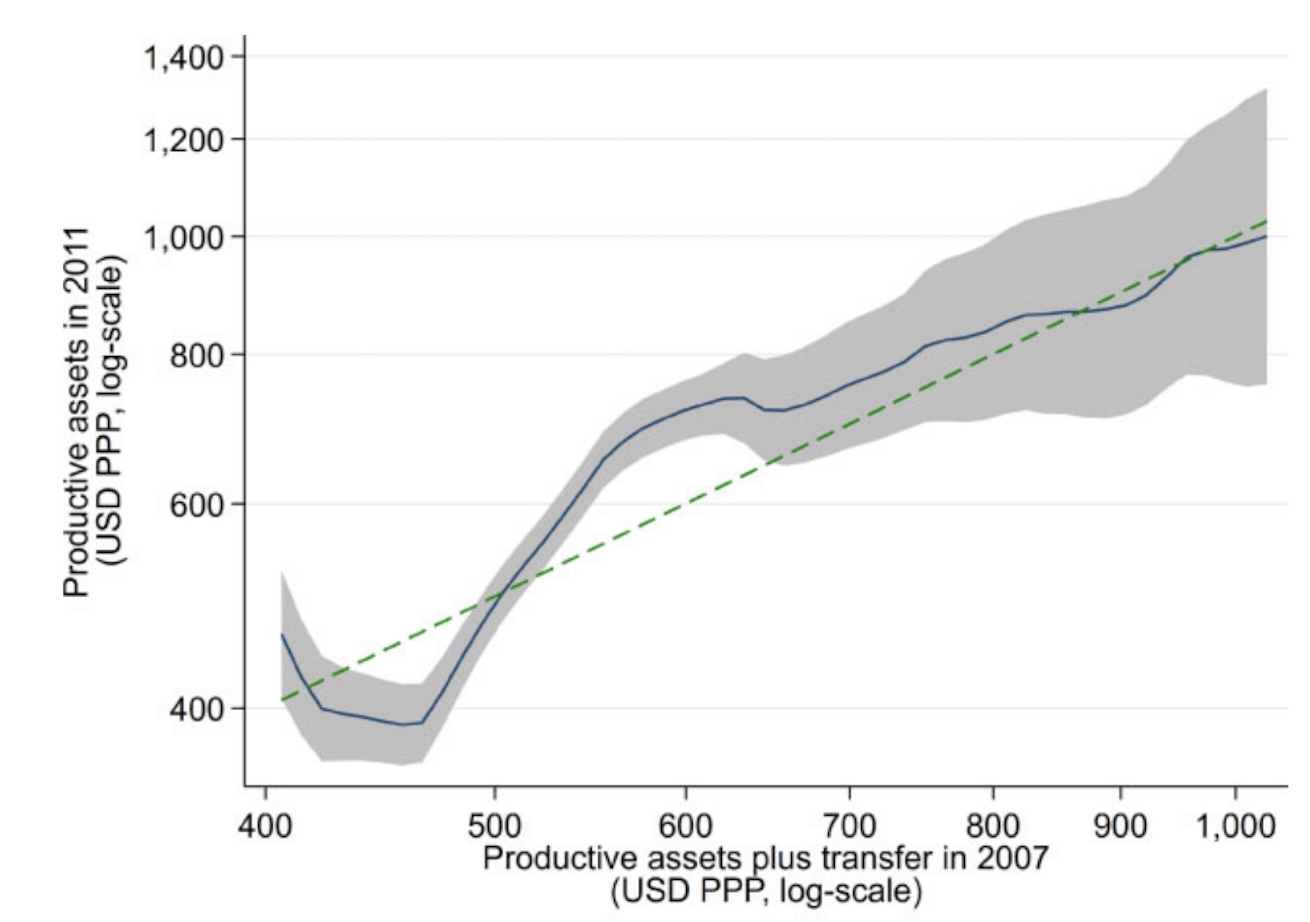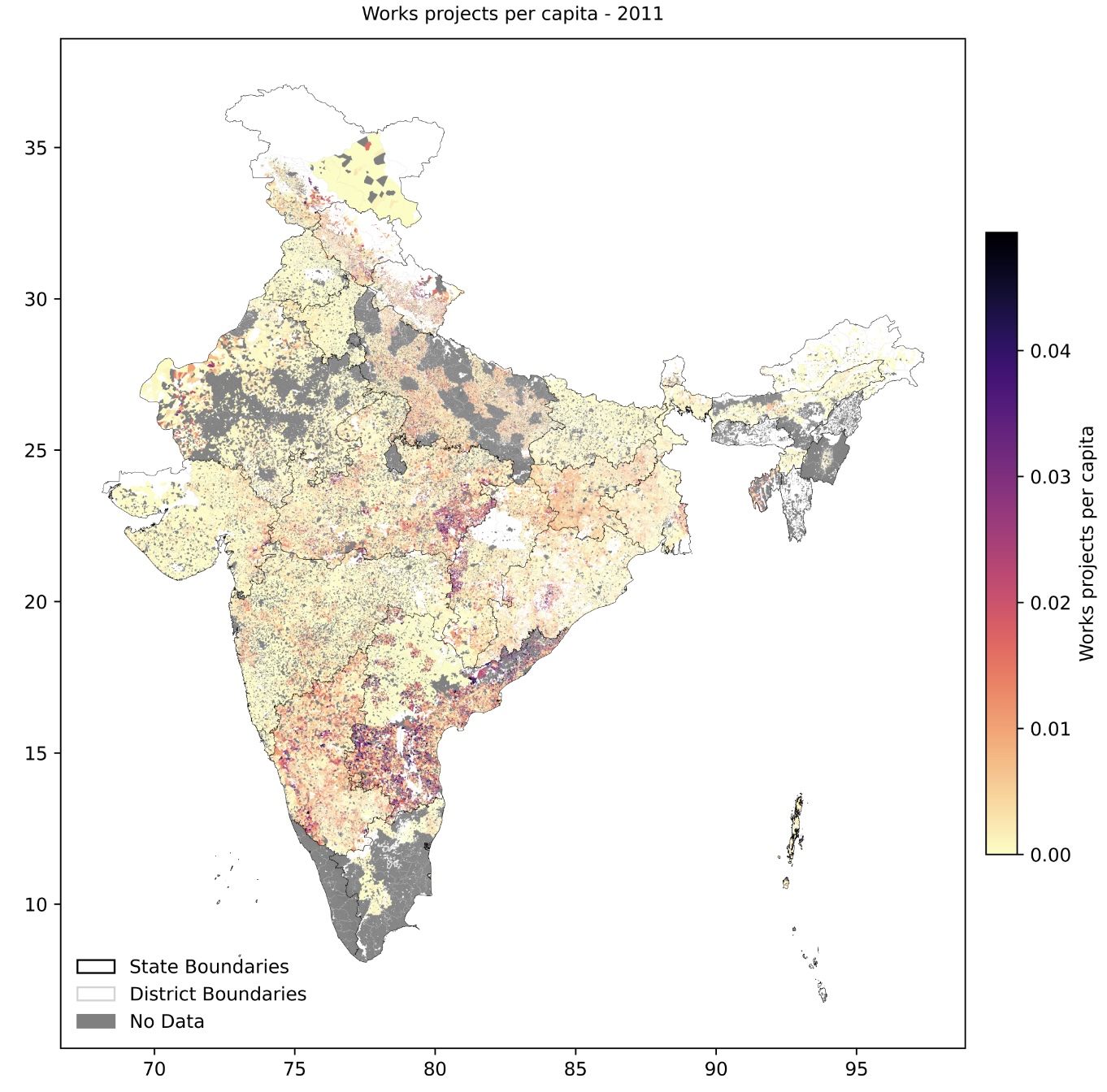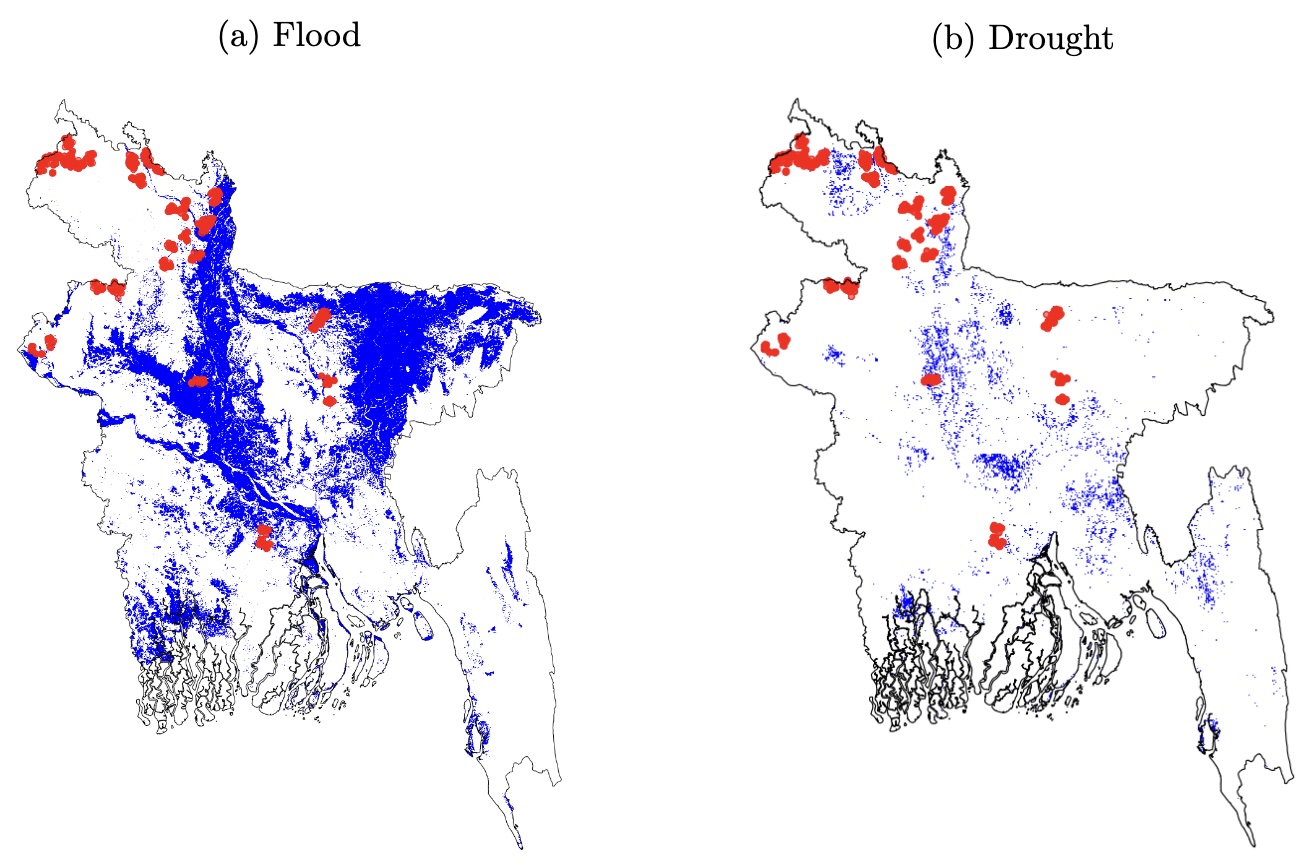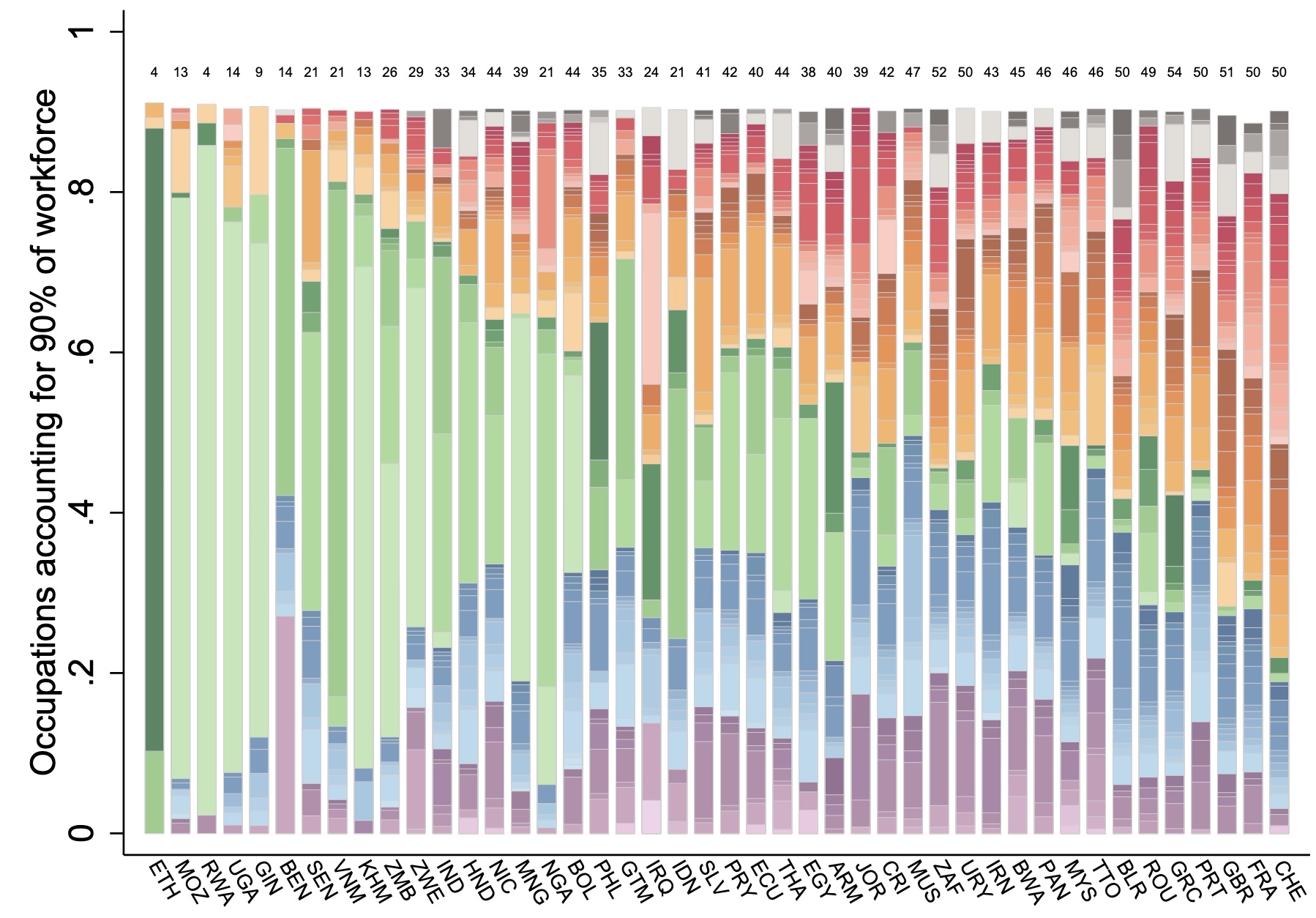Sitemap
A list of all the posts and pages found on the site. For you robots out there, there is an XML version available for digesting as well.
Pages
Welcome!
Archive Layout with Content
Posts by Category
Posts by Collection
CV
CV
Markdown
Page not in menu
Page Archive
Portfolio
Research
Sitemap
Posts by Tags
Talk map
Talks and presentations
Teaching
Terms and Privacy Policy
Blog posts
Jupyter notebook markdown generator
Posts
Future Blog Post
, 2199
Blog Post number 4
, 2015
Blog Post number 3
, 2014
Blog Post number 2
, 2013
Blog Post number 1
, 2012
portfolio
Portfolio item number 1
Portfolio item number 2
publications
Cycles of Fire? Politics and Forest Burning in Indonesia [Download]
With Clare Balboni, Robin Burgess, Jonathan Old, Benjamin Olken
AEA Papers & Proceedings, 2021
Click for abstract
This paper examines the link between electoral incentives and environmental degradation by exploiting a satellite dataset on 107,000 forest fires and 879 asynchronous district elections in Indonesia. Fires represent a cheap but illegal means of converting forested land to other uses, but they risk burning out of control and creating substantial negative environmental externalities. We find a significant electoral cycle in forest fires. Ignitions and area burned decline during election years but steeply increase in the year after. The results suggest that politicians may suppress this activity at times when it might particularly dent their electoral chances.
Economic Development and the Organisation of Labour: Evidence from the Jobs of the World Project [Download]
With Oriana Bandiera, Ahmed Elsayed, Andrea Smurra
Journal of the European Economic Association, 2022
Coverage: VoxDev
Click for abstract
The Jobs of the World Project is a public resource designed to enable research on jobs and poverty across and within countries over the entire development spectrum. At its core is a new dataset assembled by harmonising Demographic and Health Surveys (DHS) and National Censuses (IPUMS) for all countries and all years after 1990 where data is available. The current version covers 115 countries, observed four times on average. We use the data to show how the nature of jobs and their allocation vary within countries by wealth and gender and across countries by stages of development. We discuss evidence that shows how disparities at the micro level lead to a misuse of human potential that links individual poverty to national income.
Why Do People Stay Poor? [Download]
With Clare Balboni, Oriana Bandiera, Robin Burgess, Maitreesh Ghatak
Quarterly Journal of Economics, 2022
Coverage: Econimate, VoxEU (Article), Of Dollars and Data, PhysOrg, LSE Magazine, CERP-VDEDV
Click for abstract
There are two broad views as to why people stay poor. One emphasizes differences in fundamentals, such as ability, talent, or motivation. The poverty traps view emphasizes differences in opportunities that stem from access to wealth. To test these views, we exploit a large-scale, randomized asset transfer and an 11-year panel of 6,000 households who begin in extreme poverty. The setting is rural Bangladesh, and the assets are cows. The data support the poverty traps view—we identify a threshold level of initial assets above which households accumulate assets, take on better occupations (from casual labor in agriculture or domestic services to running small livestock businesses), and grow out of poverty. The reverse happens for those below the threshold. Structural estimation of an occupational choice model reveals that almost all beneficiaries are misallocated in the work they do at baseline and that the gains arising from eliminating misallocation would far exceed the program costs. Our findings imply that large transfers, which create better jobs for the poor, are an effective means of getting people out of poverty traps and reducing global poverty.
Graduation [Download]
With Munshi Sulaiman, Oriana Bandiera, Robin Burgess
Forthcoming in The Handbook of Social Protection in Low-and Middle-Income Countries, 2025
Click for abstract
Graduation programs provide a targeted bundle of interventions that address participants basic needs, kick start income generating activities through asset and skill transfers, facilitate financial inclusion and promote social empowerment. This approach has been adapted to many contexts, but the goal is always to permanently improve participants welfare by enabling them to take up profitable and self-sustaining work. Initially developed in the non-government sector, the approach is increasingly incorporated into governments’ social protection schemes around the world. This chapter details the workings of the graduation approach, the philosophy behind its design, its diverse applications, and the evidence of its impact.
Poverty Traps [Download]
With Oriana Bandiera, Robin Burgess, Munshi Sulaiman
For the Handbook of Development Economics Vol. 6
Building Climate Resilience Through Public Works
Supported by The Weiss Fund (University of Chicago)
Click for abstract
Public works programs are among the most common social protection schemes in low and middle-income countries. They have the potential to offer effective social protection to agriculture-dependent communities facing increasingly frequent and severe weather. Yet, one important aspect of these programs is understudied: does the public infrastructure constructed through the programs improve agricultural productivity and resilience? To tackle this question, I assemble a novel dataset of 80 million small-scale infrastructure projects constructed through India’s public works program (NREGA). Preliminary results show that the amount and type of construction respond to local weather shocks.
Weathering poverty
With Clare Balboni, Oriana Bandiera, Robin Burgess, Clement Mazet-Sonilhac, Munshi Sulaiman, Yifan Wang
Click for abstract
The overlapping incidence of poverty and climate damages globally raises the question of whether and how poverty makes people more vulnerable to worsening weather shocks. To study this question, we overlay high-resolution, satellite-based drought and flood measures on household survey panel data from the randomized evaluation of a flagship anti-poverty graduation program in Bangladesh. The comparison of households that were equally poor before a randomly chosen group of them were given the graduation program reveals that the poorest bear the brunt of negative consumption impacts from unpredictable weather shocks. Those lifted out of poverty by the program do not reduce consumption and this protection is sustainable because it is achieved by diversifying labor activities rather than divesting assets. Programs that generate and diversify income generating activities are thus a promising means of enhancing the climate resilience of the extreme poor and avoiding adding to their numbers in the future.
Occupational Variety and Economic Development [Download]
Click for abstract
The paper introduces, formalizes, and tests the idea of occupation-based linkages between industries. Industries are linked through their common requirement of specialised skills. Occupations capture those specific skills and allow us to measure them. We first validate this intuition by documenting that occupational variety systematically rises with economic development (and industrial variety) across countries and across regions within Brazil. We then use detailed micro-data from Brazil to show that new industries and occupations emerge jointly, forming a bi-directional network where industries hire multiple, overlapping occupations and occupations work in multiple, overlapping industries. To explain these facts, we construct a model of industrialisation with occupation-based linkages. Contrary to standard models where industries would compete over specialised workers, we show that positive externalities between industries can arise, e.g. if there are matching frictions and entry of one industry thickens the labour market for the occupations it requires. Finally, using a shift-share instrument approach, we show that occupation-based linkages are positive and of a similar magnitude as traditional input-output linkages. In line with the model, a regions position in the industry-occupation network predicts the direction of industrialisation and regional growth. The results imply that education/training and industrial policies are complements and that targeting bottleneck occupations can unlock cascades of diversification.
talks
Talk 1 on Relevant Topic in Your Field
UC San Francisco, Department of Testing, 2012
Tutorial 1 on Relevant Topic in Your Field
UC-Berkeley Institute for Testing Science, 2013
Talk 2 on Relevant Topic in Your Field
London School of Testing, 2014
Conference Proceeding talk 3 on Relevant Topic in Your Field
Testing Institute of America 2014 Annual Conference, 2014
teaching
Teaching experience 1
University 1, Department, 2014
Teaching experience 2
University 1, Department, 2015


